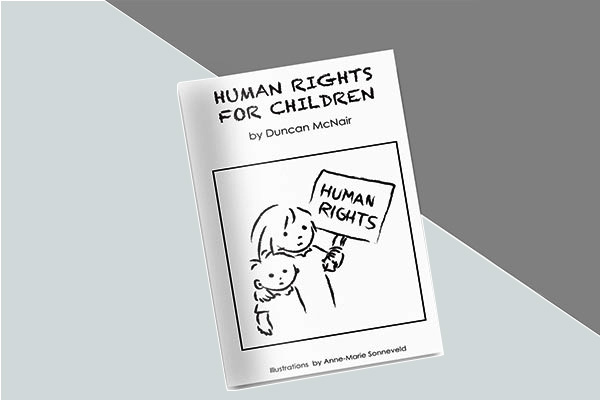You could provide exercise books for a class of 37 children to help them continue their education in times of crisis
Help protect children in Somalia
Peace building for children and adults. To achieve a peaceful, stable society, people must know how to create it. War and famine bring people really low. Our human rights education courses are relevant and powerful learning tools.
- Students learn the key human rights to ensure personal safety for themselves and their families
- They understand the Rule of Law, the key to a stable society based on fairness that protects the personal safety rights
- The other political and social rights create the structure that makes life liveable
- The remaining three rights show the goal of human rights education and nation building, the vital need for human rights education and our duty to share it with others. Finally, all the rights are as important as each other and none can be taken away.

You could provide exercise books for a class of 37 children to help them continue their education in times of crisis
According to Human Rights Watch the human rights abuses in Somalia are:
1. Attacks on civilians: The United Nations Assistance Mission in Somalia (UNSOM) recorded many civilian casualties, including killings. The majority were due to Al-Shabab targeted and indiscriminate attacks using improvised explosive devices (IEDs), suicide bombings, and shelling, as well as targeted assassinations.
Also, the UN recorded an increase in civilian casualties due to clan conflict, including revenge killings. Civilians were killed, and thousands displaced during inter-clan clashes in different parts of Somalia.
The US increased its military activity; in the first three months of 2020, it conducted twice as many airstrikes as in the same period of 2019. Some US actions killed and injured civilians.
2. Sexual violence against women and girls: The UN documented many cases of conflict-related sexual violence, mostly against girls in Somalia. Somali Government soldiers and African Mission in Somalia (AMISOM) both committed sexual violence against women and girls in Somalia allegedly.
3. Abuse against Children: All Somali parties to the conflict committed serious abuses against children, including killings, maiming, the recruitment and use of child soldiers, and attacks on schools.
Al-Shabab continued its aggressive child recruitment campaign with retaliation against communities, refusing to hand over children. National and regional forces recruited and used children, according to the UN.
Somali federal and regional security forces unlawfully detained children for alleged ties with armed groups, undermining government commitments to treat children primarily as victims. The government failed to put in place child rights compliant justice measures.
4. Freedom of expression and association: Federal and regional authorities repeatedly harassed, intimidated, and attacked journalists. Arbitrary arrests and detentions, sometimes followed by prosecutions on baseless charges under the criminal code, were common.
5. Freedom of religion and belief: Nearly all Somalis are Sunni Muslims, though there is a very small Christian community. The provisional constitution recognizes Islam as the official religion and forbids the promotion of any other faith. However, it also includes clauses promoting religious freedom and forbidding discrimination based on religion. In areas under its control, the Shabaab use violence to enforce their interpretation of Islam, including execution as a penalty for alleged apostasy.
6. Human trafficking for sexual exploitation: In the case of Somalia, in 2009; IOM initiated the first counter trafficking programme in the three regions of Somaliland, Puntland and South Central Somalia, which generated much interest and support from regional authorities and civil society. Through its counter trafficking projects, IOM was able to further establish evidence that victims are being trafficked within and out of Somalia. In fact, findings from rapid assessments commissioned by IOM in Puntland and Somaliland confirmed that the phenomenon is indeed widespread.
However, as in most other countries, the exact scale of trafficking in Somalia is difficult to determine and document, due to the very nature of this particular crime. While IDPs, asylum seekers and economic migrants (both Somali and Ethiopian) are particularly vulnerable to human trafficking, it has been clearly established that others, mainly Somali women and children, and often from very poor families are also at high risk of trafficking.
